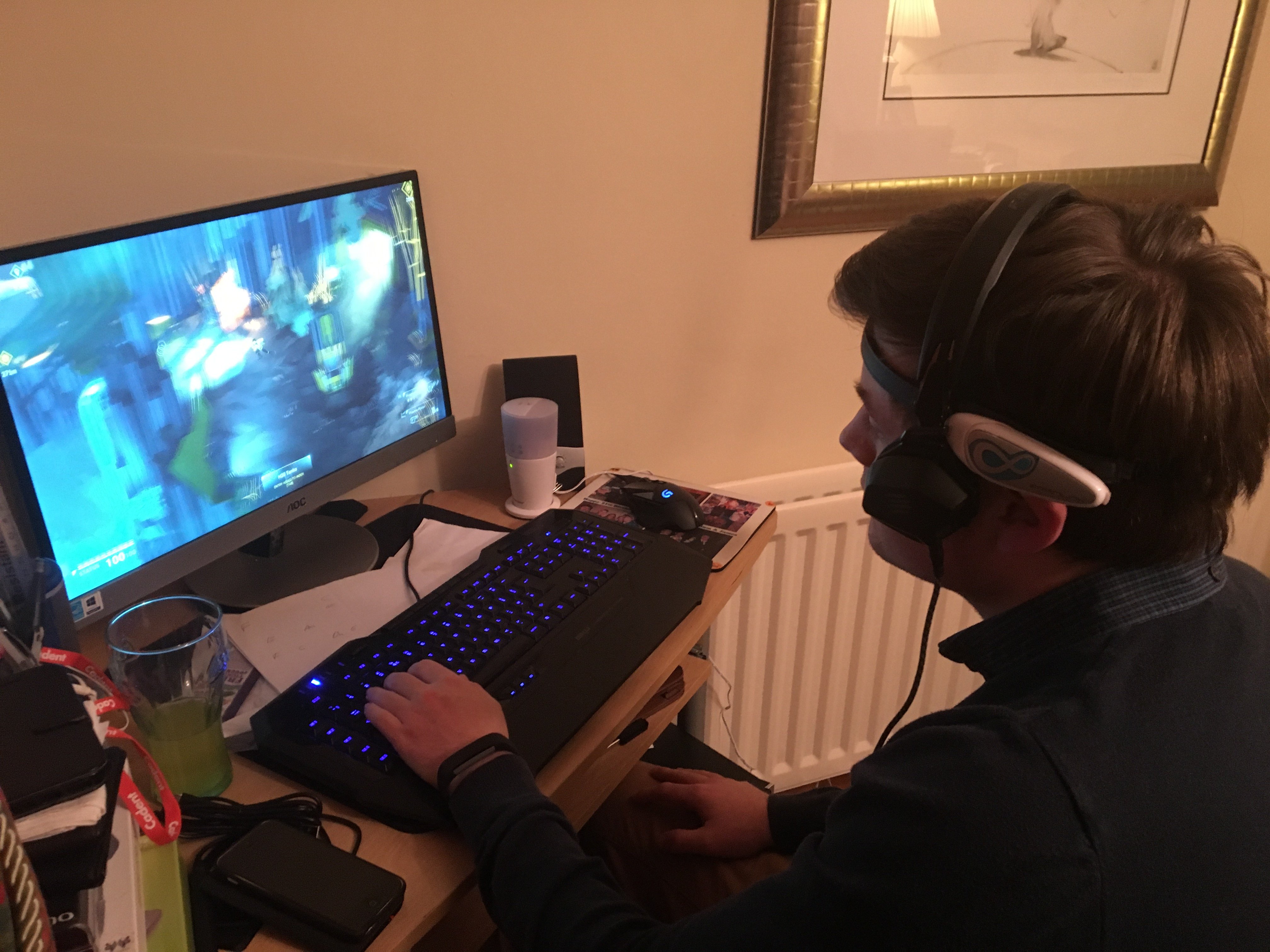Leading a life as a young adult with epilepsy is challenging and confronting. We spoke to two women about the specific challenges in their lives. Sarah (41), who has focal impaired awareness seizures and Sue (65) with juvenile myoclonic epilepsy, share their stories and their three biggest challenges when they were a young adult.
Topics: epilepsy, life questions, impact on family, self-care, self-awareness, living with epilepsy, familiy, pregnancy, employment, idiopathic refactory epilepsy, idiopathic generalized epilepsy
Many people with epilepsy experience social isolation. One of the most common causes is the fear of potential embarrassment if a seizure occurs and this often prevents people with epilepsy from attending social functions or sharing their story with others. Simon Privett from the UK is an example of the contrary. Simon is actively involved in a number of initiatives and uses both face-to-face meetings and social media to engage with others affected by epilepsy. Later this year, he will be awarded with the prize Volunteer of the Year by Epilepsy Action. In this interview, Simon shares his story and work within the epilepsy community.
Topics: epilepsy, impact on family, support, living with epilepsy, familiy, support group, awareness, epihunter, research support, epilepsy action, social media
Ring Chromosome 20 syndrome, also known as r(20), is an ultra-rare condition, the first symptom of which is usually epilepsy. Due to the delayed onset of the signs of the syndrome and the difficulties in identifying it, no true statistics for r(20) exist. This isn’t good enough for Allison Watson, co-founder of Ring20 Research & Support UK CIO. Here, she explains why.
Topics: epilepsy, impact on family, support, living with epilepsy, familiy, support group, awareness, epihunter, rare diseases, r(20), ring chromosone 20 syndrome, research support
Interview with Eva Schoeters, founder be-TSC
Tuberous Sclerosis Complex (TSC), also known as Bourneville's disease, is a complex genetic disease of which epilepsy is often one of the symptoms. Clear communication around TSC and tight monitoring of it is crucial to limiting the impact of the condition. That is why Eva has committed herself to the role of chairman of be-TSC, an association that wants to be there for those who have to deal with TSC. In this blog, she tells more about TSC and shares her story.
Topics: absence, epilepsy, uncertainty, impact on family, support, living with epilepsy, familiy, support group, awareness, spasms, tsc, Tuberous sclerosis, infantile spasms, rare diseases
Epihunter is used by children, young people, and adults. In this interview, we meet Philippe (52) from Antwerp, Belgium. He has been using epihunter for some time and shares his story with us - from his first seizure to his new daily approach and the lessons of his epilepsy.
Topics: absence, testimonials, seizure, uncertainty, unpredictable, neurologist, diagnosis, self-care, self-awareness, living with epilepsy, epihunter, apps
Do you remember the 1990s? At that time the main reasons for having a mobile phone were calling, texting, and playing Snake. Today, we use our phone to track our diet, to measure our heart rate, and to plan our rehabilitation. Our international sales and community manager, Hogne, dives into the topic of ‘Mobile Health’.
Topics: epihunter, artificial intelligence, health care, mhealth, personalised care, digital health, smartphone
Interview with Stefanie De Jonghe
Childhood epilepsy has a huge impact on daily family life. It also challenges your feelings as a parent. Stefanie De Jonghe, chairperson of Steunpunt Kinderepilepsie - a Flemish non-profit organisation focused on childhood epilepsy - knows what she’s talking about. Six years ago her daughter, Lenie, was diagnosed with a severe form of epilepsy. Stefanie gives us an honest and touching account of her daily family life and tells us more about the Steunpunt Kinderepilepsie’s mission and activities.
Topics: absence, epilepsy, unsteady agenda, uncertainty, impact on family, support, living with epilepsy, familiy, support group, awareness
No other child is as beautiful as your own, that's for sure. Epilepsy doesn't change that. But that doesn't stop comparisons being drawn between friends and classmates and this at times can lead to difficult realisations. Suzanne, Machteld, Krist, and Peggy share their story.
Topics: absence, epilepsy, living with epilepsy, awareness, confrontations, school, class
Epihunter as a promising Health Tech solutions provider
About 4 months ago Epihunter won the Jury award for Innovation at Health&Care 2018. End of June we presented our solution at the Healthtech Summit in Lausanne after being nominated by industry as one of the 40 most promising health tech startups in Europe. All this is linked to our mission to create digital solutions to make epilepsy matter less, and to our belief that current digital technologies can create a massive impact on the daily life of people with epilepsy.
Topics: epihunter, deep learning, machine learning, artificial intelligence, health care
Life is filled with beautiful moments. The nice experiences, the good memories. Absence epilepsy does not change that. Life however sometimes entails darker periods. Hard times, the difficult situations and confrontations. And yes, the latter ones may occur more often due to the disorder. That is why it is incredibly important for a parent to take time for oneself, some “me-time”. Accept outside help, share your concerns, grant yourself a little extra. All without any feeling of guilt. Self-care is essential to make life with absence epilepsy bearable. Some parents testify, read their stories below.
Topics: absence, epilepsy, self-care, stressful, self-awareness, support, living with epilepsy, familiy, support group, awareness










